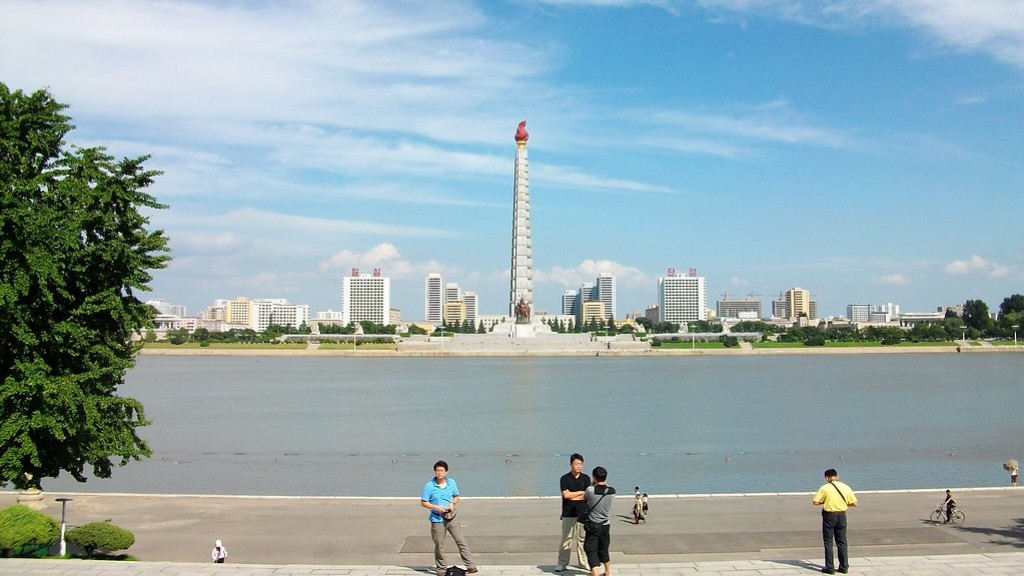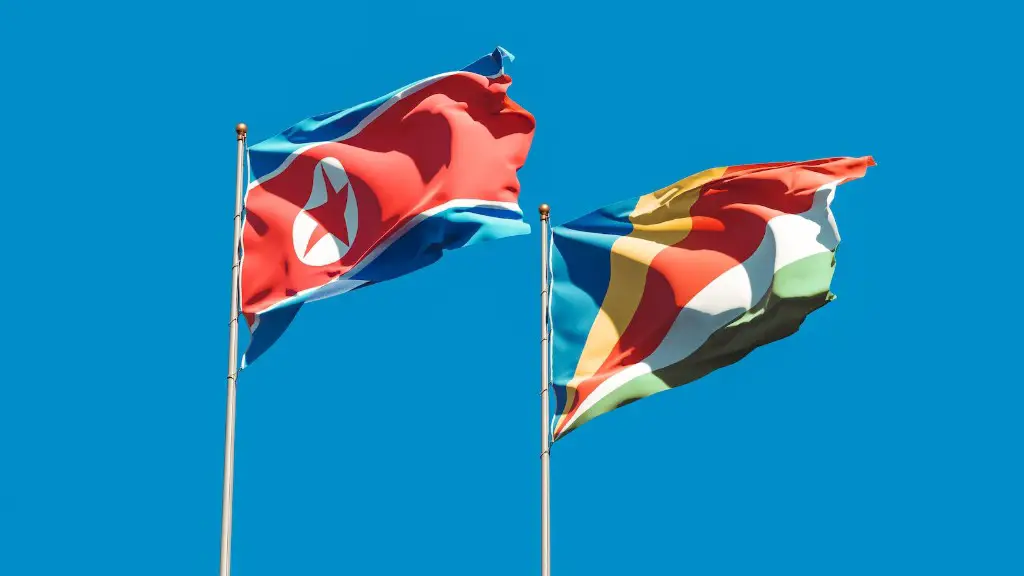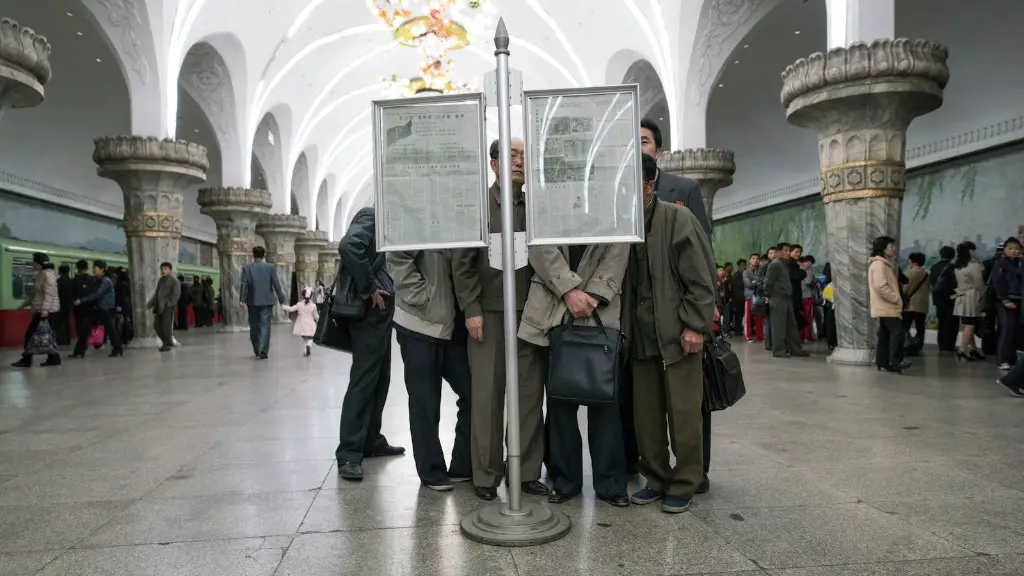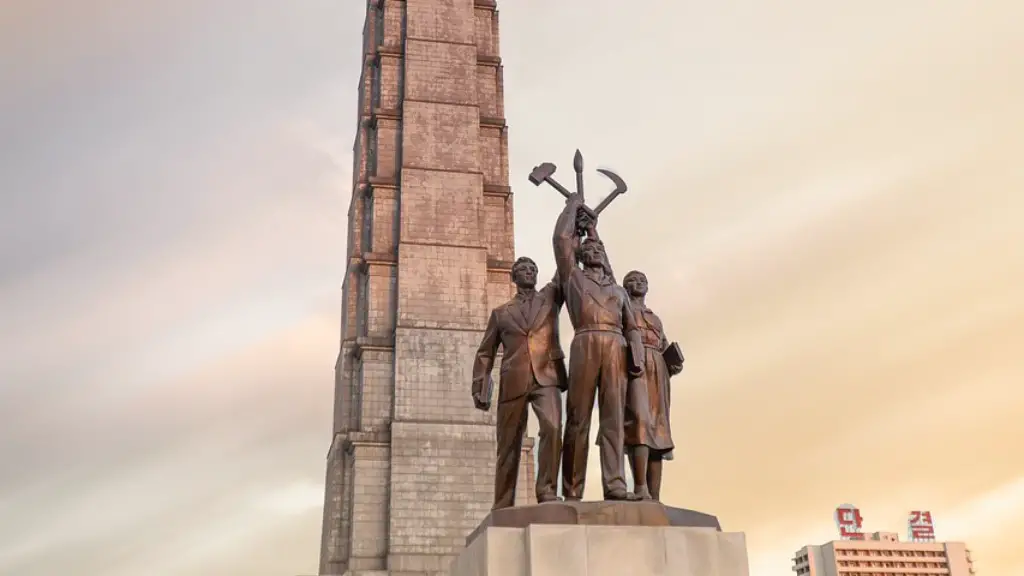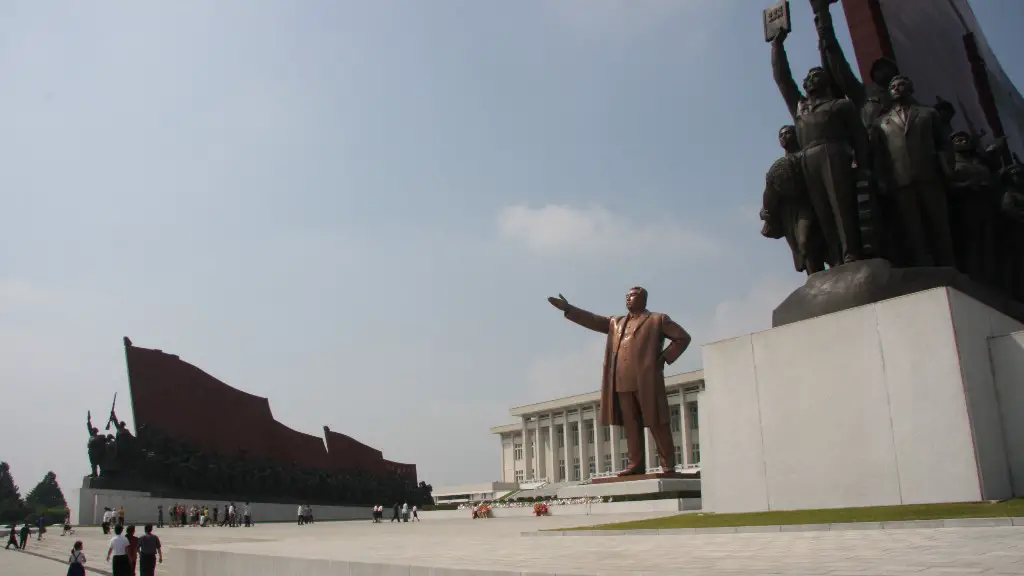North Korea is one of the most isolated countries in the world. With a totalitarian regime, draconian laws and a cult-like devotion to its leader, it is difficult to imagine how a country like North Korea could survive in the long run. Yet, North Korea has been able to survive for over five decades and continues to defy international expectations of collapse. But can it maintain its current stability in the future?
The answer depends heavily on North Korea’s economic, political and military capabilities. North Korea’s heavily state-controlled economy is one of the major drivers of its survival. The government devotes substantial resources to support the country’s agricultural and manufacturing industries. It also maintains restrictive import-export policies and limits the economic independence of its people. These factors combine to give North Korea a degree of economic resilience that has helped it survive in spite of international sanctions and other economic pressures.
In addition to its economic capabilities, North Korea’s ability to survive is also linked to its strong political system. The government has maintained tight control over information and communications, while propagating a carefully managed “cult of personality” around its leader, Kim Jong-Un. This cult of personality has been effective in subduing dissent and creating a sense of loyalty among the population. It has also enabled the government to pursue ambitious national projects, such as its nuclear weapons program.
Finally, North Korea’s military capabilities have been a major factor in its survival. The country has invested heavily in its military, not only in terms of conventional forces but also in its nuclear weapons program. North Korea’s nuclear arsenal has served as a deterrent against potential aggressors and has also enabled the country to remain a significant player in global affairs. In addition, North Korea’s military forces have been a major factor in maintaining internal order and stifling any attempts at destabilising the country.
In summary, North Korea’s ability to survive is heavily reliant on its economic, political and military capabilities. The country has managed to survive due to its strong economic foundations and its political and military systems. While its future remains uncertain, North Korea is likely to remain a viable state in the future due to its unique blend of resilience and strategic strength.
The Political Influence of North Korea
North Korea is a small, isolated country, yet its actions and policies have a global impact. The government has a long history of playing an outsized role in regional and global politics, and its actions have been a major factor in driving both regional relations and global affairs. Its political influence has been especially evident in its interactions with the United States and its allies in East Asia, including South Korea, Japan, and China.
North Korea’s political influence is partially due to its nuclear weapons program. The nuclear arsenal has enabled the government to pursue aggressive actions, such as testing long-range missiles and engaging in provocative language. More importantly, North Korea’s nuclear arsenal has served as a deterrent against potential aggressors, making it difficult for other countries to take military action against it.
North Korea’s political influence is also related to its diplomatic relations. The country has maintained relations with several countries, including Russia, China, and the United Arab Emirates. These countries provide North Korea with economic, military, and diplomatic support, thus granting the regime a greater degree of international legitimacy. In addition, North Korea has also engaged in negotiation and diplomatic dialogue with other countries, including the United States, in an effort to secure peace and stability in the region.
North Korea’s political influence is also evident in its involvement in international organisations such as the United Nations. Although the country is heavily sanctioned by the U.N., it still participates in various initiatives and international treaties. These involvements provide North Korea with the opportunity to participate in the global community and influence international affairs.
In summary, North Korea’s political influence is heavily linked to its economic abilities, diplomatic relations, and its nuclear arsenal. The country has managed to use these factors to its advantage, enabling it to exert influence and maintain stability in the region and around the world.
North Korea’s Diplomatic Relations
North Korea is a heavily isolated country, yet it has managed to maintain diplomatic relations with several countries. These relationships have provided North Korea with economic, military, and diplomatic support, enabling the regime to maintain its stability and international presence. While some of these countries were former allies of the North, such as the Russian Federation and the People’s Republic of China, other countries, such as the United Arab Emirates and Egypt, have recently established diplomatic ties with North Korea.
The most important of these diplomatic relations is North Korea’s relationship with China. As North Korea’s largest trading partner, China provides the isolated country with an economic lifeline. In addition, China has also provided North Korea with political and military support in an effort to prevent its collapse. This strategic relationship is an important factor in North Korea’s ability to remain a viable state.
Apart from China, North Korea also has diplomatic relations with several other countries. These include countries in Europe and South America as well as some countries in Africa and the Middle East. These diplomatic relationships have enabled North Korea to maintain its presence in international affairs and to participate in certain initiatives, such as negotiations with the United States.
In summary, North Korea’s survival is partly dependent on its diplomatic relationships. Maintaining diplomatic relations with important countries such as China and other countries provides North Korea with economic, military, and diplomatic support that enable it to remain a viable state in international affairs.
North Korea’s Economic Situation
North Korea is one of the poorest and most isolated countries in the world. The country’s economy is heavily state-controlled and depends heavily on foreign aid and concessional loans. In addition, North Korea has been subject to numerous international sanctions which have limited its ability to conduct foreign trade. As a result, the economy has been in a state of stagnation for many years.
Despite its dire economic situation, North Korea still manages to maintain a certain degree of resilience. This is due in part to the government’s agricultural and industrial production which are aimed at providing the population with basic goods and services. The government also maintains strict import-export policies and limits economic freedom, which has enabled it to remain relatively isolated from the outside world.
North Korea has also benefitted from foreign investments from countries such as China and Russia. These investments have helped to boost the country’s economy and have enabled North Korea to fund its nuclear weapons program and its other strategic projects. In addition, the regime has also taken advantage of the international situation and has practiced a certain degree of “diplomatic opportunism,” such as diplomatic dialogues with the United States.
In summary, North Korea’s economic situation is dire, yet the country has still managed to maintain a degree of resilience due to the government’s policies and occasional foreign investments. While the future is uncertain, North Korea is likely to remain a viable state in the future due to its unique blend of resilience and strategic strength.
North Korea’s Military Capabilities
North Korea has invested heavily in its military forces in an effort to maintain its security and stability. The country has a large military, with over one million active soldiers, one of the largest in the world. In addition, North Korea possesses an arsenal of nuclear weapons, estimated to range from fifteen to sixty warheads, which makes it one of the few countries in the world with such capability.
North Korea’s military forces are divided into both conventional and unconventional forces. Its conventional forces are split into army, navy, and air forces, which are backed up by ballistic missiles and nuclear weapons. The unconventional forces include Special Forces units, which are responsible for internal security and guerrilla warfare.
The military forces are also used to maintain internal order and stifle any attempts at destabilizing the country. The government is known to brutally repress dissenters and dissidents, making it difficult for any form of organized opposition or unrest to take hold.
North Korea’s military forces are also used as leverage in international politics. The country’s nuclear arsenal has served as a deterrent against potential aggressors, making it difficult for other countries to take military action against it. Moreover, North Korea has used its military capability as a bargaining chip in negotiations with other countries, such as the United States, making it a key player in global politics.
In summary, North Korea’s military capabilities are a major factor in its survival. The country has invested heavily in its forces and its nuclear arsenal has enabled it to remain a significant player in international affairs. In addition, the military forces also provide a degree of internal stability, thus making it difficult for any form of organized opposition or unrest to take hold.
North Korea’s Human Rights Situation
North Korea is known for its severe human rights violations which have been documented by various international organizations, such as Amnesty International and Human Rights Watch. These violations include torture, arbitrary detention, lack of freedom of expression and movement, forced labor, and religious persecution. In addition, the government has been accused of deliberately obstructing aid organizations from accessing areas in need of humanitarian assistance.
The government has maintained tight control over its citizens and has heavily censored the media. Internet access is heavily restricted and access to outside information is limited. This has enabled the government to propagate its own propaganda and stifle any attempts at dissent or organizing an opposition.
The lack of freedoms and human rights violations have also had a detrimental effect on the population. Human life in North Korea is often characterized by extreme poverty, malnutrition, and health problems, as well as a lack of access to basic services. These issues are exacerbated by the government’s restrictive policies and its prioritization of the military and nuclear programs over the health and well-being of its citizens.
In summary, North Korea’s human rights situation is dire and has been a major factor in its isolation from the rest of the world. The government’s tight control over its citizens and its heavy-handed approach to censorship has stifled any attempts at dissent or organizing an opposition. In addition, the lack of freedoms and human rights violations have had a detrimental effect on the population, exacerbating poverty, malnutrition, and health problems.
North Korea’s International Relations
North Korea is one of the most isolated countries in the world and has a hostile relationship with most of its neighbors. The country’s government has maintained strained relations with other countries, particularly those in the West. These have included diplomatic disputes, economic sanctions, and military confrontations.
North Korea’s international relations have been further damaged by its nuclear weapons program. The country has tested several long-range missiles in recent years, prompting criticism from the international community. This has led to harsher economic sanctions being imposed on North Korea and further worsened its relations with its neighbors.
Despite these issues, North Korea has maintained diplomatic ties with several countries. These include countries in Europe,

